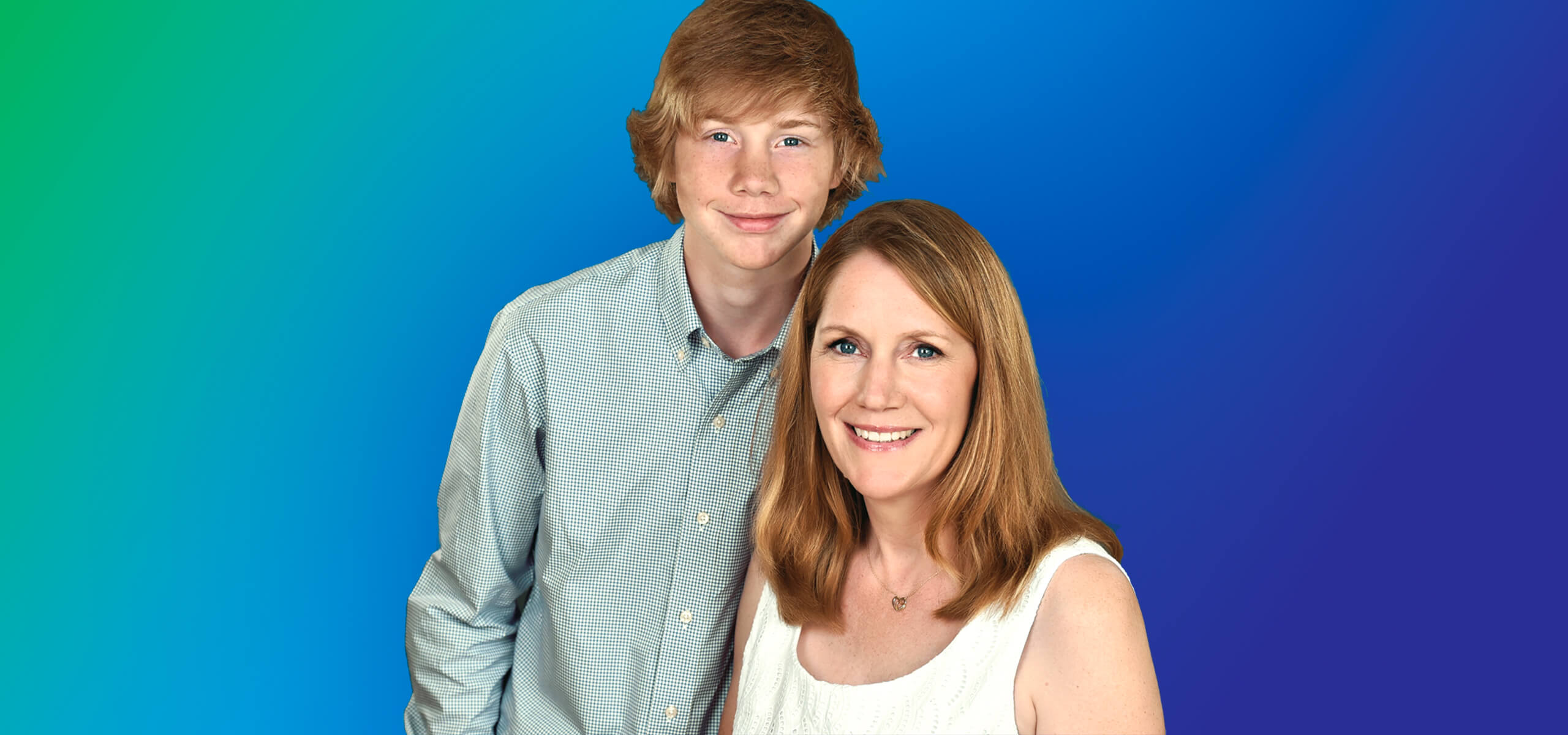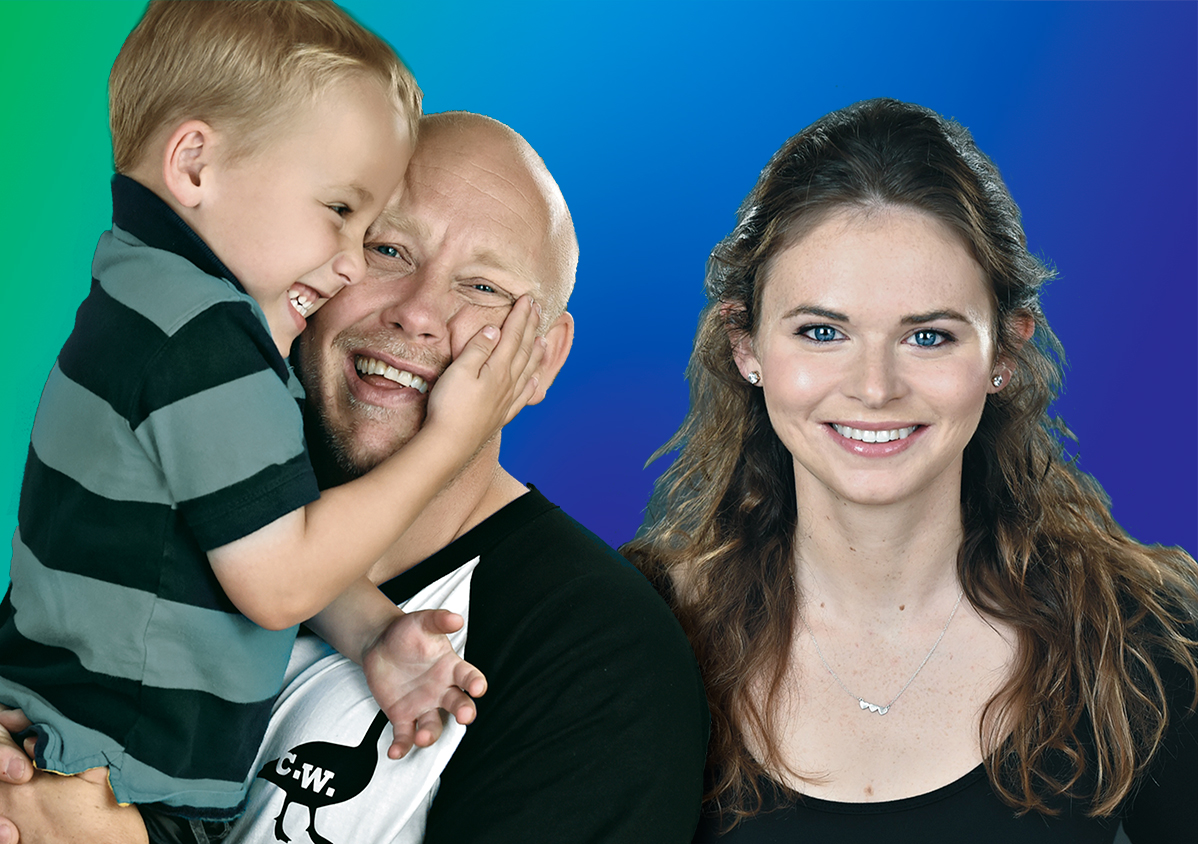
Ben Tunnell & Leslie Edwardson
Meet Ben Tunnell & Leslie Edwardson. Ben is living well after open heart surgery.
When Benjamin Tunnell was three years old, he would wake up in the middle of the night crying in pain. His legs hurt. Mom Leslie Edwardson remembers calling a health hotline several times, only to be told it was just growing pains.
There were other things. Ben was slow to walk, wasn’t gaining weight and wasn’t as active as other kids his age.
When Ben was five, the family switched doctors. At Ben’s first checkup, the new doctor listened to his chest. “He asked me if anyone had ever said anything about Ben’s heart,” recalls Leslie. Someone had. “When Ben was an infant, his pediatrician heard a slight heart murmur but said that it was nothing alarming. No one ever mentioned it again.”
According to the new doctor, Ben had a murmur coming from both the front and back of his heart, which is extremely unusual. He took Ben’s blood pressure, which was alarmingly high, and immediately booked Ben a priority appointment at the Children’s Hospital of Eastern Ontario (CHEO) in Ottawa.
Two days later, Ben had an EKG at CHEO. It was normal. Ben was prescribed medication to treat his high blood pressure.
But the family physician wasn’t satisfied and pressed for further testing. This time, alarm bells started ringing. There was a dramatic difference between the blood pressure in Ben’s upper and lower body: 165/100 in his arm and 60/30 in his leg.
Two months later, Ben had an angioplasty to widen his aorta. Although the aortic arch was so narrow that the catheter couldn’t be inserted, doctors finally knew what was wrong. Ben had a congenital heart defect that was causing his heart to over-pump in a failed attempt to get enough blood to his legs. To compensate, his body had created hundreds of collateral arteries outside of the heart, but even they weren’t enough.
Three months later, on February 16, 2003, surgeons at CHEO performed open heart surgery on five-year-old Ben. They slit his aortic arch — the portion of the main artery that bends between the ascending and descending aorta — and performed a tissue graft to widen the arch so blood could flow normally to his entire body.
The miracle moment for Leslie was seeing Ben for the first time after the operation, 12 long hours later. “All over his body — his chest, legs, feet — we could see these veins we’d never seen before. That was my wow moment. Everybody had missed it.”
“Our family will be forever grateful to the support we received from the Heart & Stroke Foundation of Canada during a very trying time in any parent’s life — helping our five-year-old son Ben get through and recover from open heart surgery.”
leslie edwardson
When Ben’s ventilator was removed the next day, he immediately asked for pizza and apple juice. Everyone breathed a sigh of relief. Leslie remembers one of the nurses joking, “If all he can think about is food right now, this kid is going to be okay!”
Ben, now 22, says he’s “fairly normal [and that] the only difference between me and any other person is I can’t play contact sports or lift heavy weights. The walls of my aorta are a bit thinner in places because of the surgery, so there’s a risk of them tearing if I put too much strain on my heart.” It’s a small price to pay.
Ben’s journey to wellness was a scary one, but the Heart & Stroke Foundation of Canada was there for him and his family every step of the way. “The Foundation played a huge role in educating us about heart and stroke issues, helping us understand what we could expect in terms of Ben’s surgery, and how to help our son recover and get through what was a very difficult and high-risk situation,” says Leslie.
Leslie and Ben wanted to find a way to give back to the organization that had done so much for them, so they became spokespeople for the Foundation. “Ben was their poster boy,” says Leslie. “He would tell his story at their volunteer appreciation events and I started doing healthy heart talks at schools. Ben was even the chair of the Walk for Heart one year. His whole hockey team came out and made an arch of hockey sticks to kick it off.”
The pair also became involved with HealthPartners, which supports Canada’s 17 most trusted health charities, including the Heart and Stroke Foundation, to transform the health of Canadians.
Ben can’t say enough about HealthPartners and its role in funding life-changing research, education and outreach: “By donating to HealthPartners, you’re not just supporting one organization. You’re helping many people with many different diseases.”
Leslie agrees. “It is wonderful to be part of an organization that is so encompassing. I don’t think people understand how much these charities do to help people — members of our community — in such a broad way.”
Proud of the then feisty five-year-old fighting for his life and the strong, generous young man he has become, she adds: “Ben is living proof that donating to HealthPartners works.”

Living Proof
I Am Living Proof of your donations at work.
Through workplace giving we are transforming the lives of Canadians. These stories are Living Proof of your donations at work.
